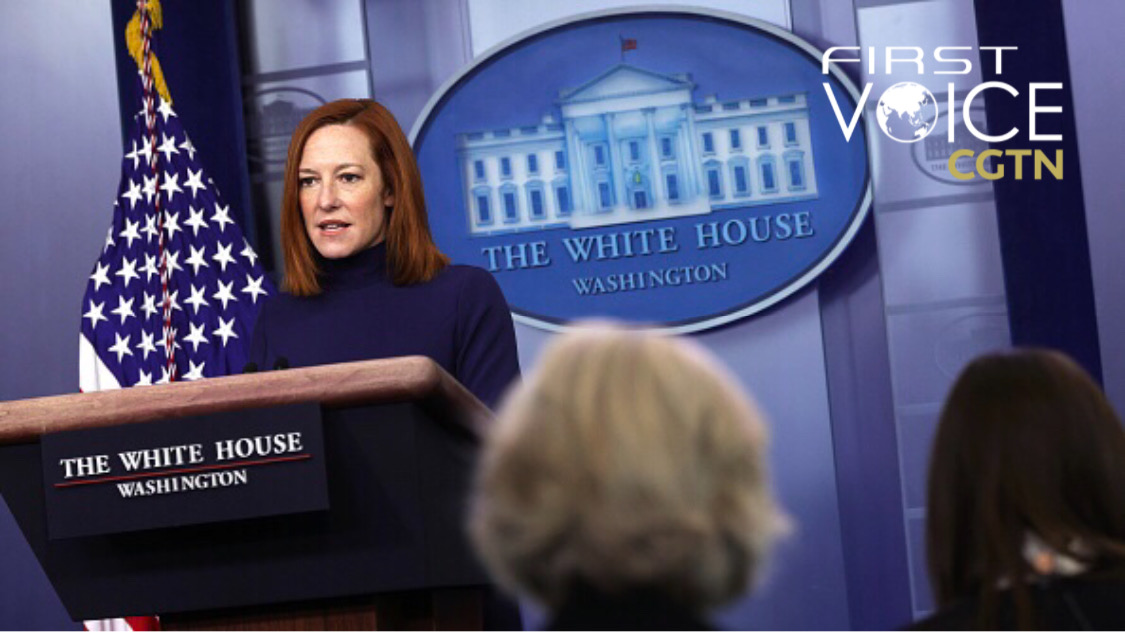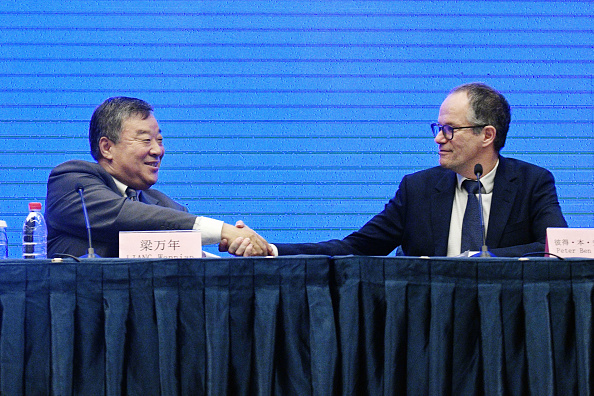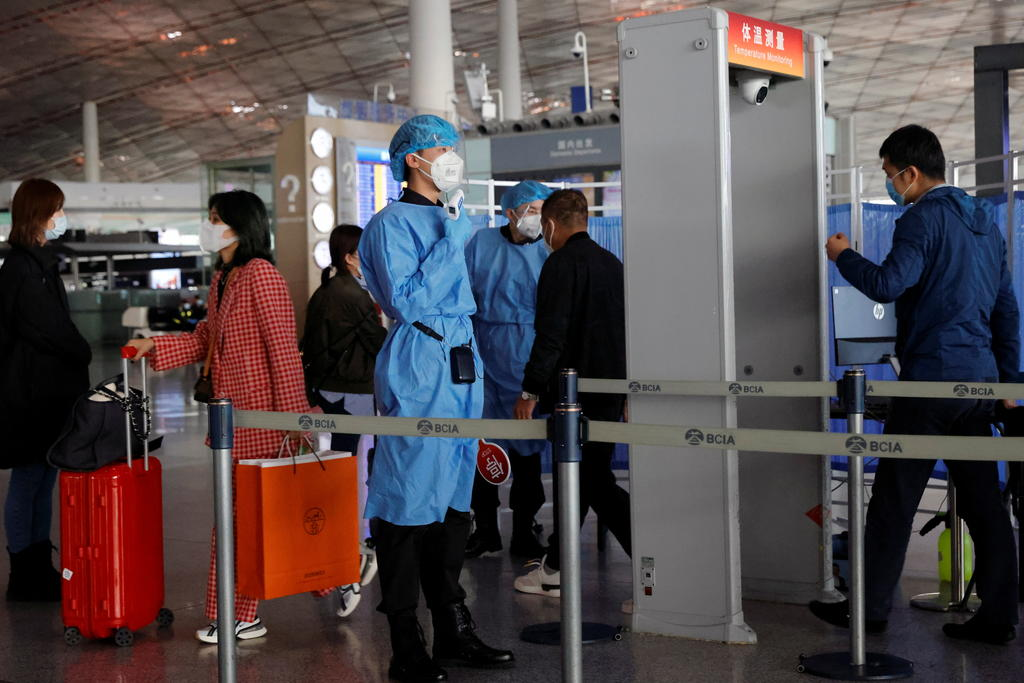
Editor's note: CGTN's First Voice provides instant commentary on breaking stories. The daily column clarifies emerging issues and better defines the news agenda, offering a Chinese perspective on the latest global events. This is the first part of a series on the WHO-China joint study on the origins of coronavirus.
Soon after a team of experts from the World Health Organization (WHO) announced the results of its assessment that it is "extremely unlikely" that the novel coronavirus originated at a laboratory in central China's Wuhan City and there wasn't a need for further study, Washington said it has reservations.
Eerily similar to the administration of former U.S. President Donald Trump belittling the multilateral body for allegedly favoring China, White House Press Secretary Jen Psaki released a statement saying that the U.S. will be scrutinizing the findings further and it is "imperative that we have our own team of experts on the ground" in China. The fact that an independent, multilateral assessment is not being accepted by this current administration is a worrying sign that the Trump administration's rhetoric on COVID-19 origins might be there to stay.
The assessments came directly from Peter Ben Embarek, a member of the WHO-China joint team. He ruled out that a lab leak from the Chinese Academy of Sciences Wuhan Institute of Virology was the source of the pandemic. While affirming that bats remained a likely source as the animal has a history of being both a reservoir and a vector for infectious diseases, Embarek said the virus could have adopted a convoluted route, with the possibility of its transmission via frozen food also warranting more investigations.

World Health Organization and Chinese experts shake hands after a press conference in Wuhan, China, February 9, 2021. /Getty
World Health Organization and Chinese experts shake hands after a press conference in Wuhan, China, February 9, 2021. /Getty
His assessment is a testament that the origins of the virus are nebulous. China maintains that this is a nebulous domain in the wake of tirades and bellicose rhetoric which emanated from Washington. This time around, and being characteristic of their predecessors, the administration of President Joe Biden has chosen to dispute the findings, citing lack of involvement of the United States in planning and implementing the investigation and wishes to conduct an independent review. It seems as if the WHO's findings are not independent or impartial enough for American consumption.
This stance also demonstrates that the lingering trust deficits between the United States, the WHO and China has not subsided despite initial optimism of a possible rapprochement between the two countries. Demanding to have its own experts on the ground, as Jen Psaki mentioned, indicates the entire methodology for ascertaining the findings adopted by the WHO is considered controversial. It risks undermining factual and scientific information regarding the origins of the coronavirus and the pandemic it has caused.
Oxford professor Dr. Tom Jefferson had challenged this widely held assertion even prior to the WHO investigation that COVID-19 originated from Wuhan, which was ignored by the Trump administration. Embarek mentioned how new information uncovered did not fundamentally change the outlook of the outbreak. The Biden administration, however, seems to have nothing of it.

Medical staff members check the temperature of people as they enter Capital International Airport in Beijing, China, November 5, 2020. /Reuters
Medical staff members check the temperature of people as they enter Capital International Airport in Beijing, China, November 5, 2020. /Reuters
Numerous conspiracy theories regarding the virus have been fueled by such blanket beliefs. The significance of multilateral bodies such as the WHO in tracing origins is hence paramount, and there is a need to strengthen its capacity building with regard to conducting research. Instead of contributing towards research findings however, the administration blamed the perceived lack of cooperation from Chinese authorities towards WHO experts. "Requisite transparency" was the term used by Psaki, which parrots the theory that China continues to censor the discourse on the virus. If that has really been the case, WHO experts would have publicly denounced the lack of cooperation from Chinese authorities towards ascertaining the findings.
The convoluted path that Embarek mentions also underlines the geographical dimension of infectious diseases which are not limited to territory. Global travel and regional connectivity prior to the pandemic allowed for unfettered interactions between various populations. Therefore, prior to reaching the Huanan seafood market, the possibility cannot be ruled out that movements across the border were a contributing factor toward the initial outbreak. This means that demonizing China is a controversial endeavor.
Liang Wannian, head of China's expert panel on the outbreak, also said that the possibility should not be ruled out that the infections preceded the first detected case, entailing that the virus could have been circulating in other regions beyond China. Sadly, however, this entire convolution has not gone down well with the U.S., which seems to continue believing in that only one scenario is possible – the virus originated from Wuhan.
If the Biden administration really wants to move the country forward, it might do better by putting faith in the WHO study rather than peddling doubts about its authenticity or China's cooperation. Turning a blind eye makes the new administration more like the previous one than not.
Scriptwriter: Hamzah Rifaat Hussain
Part II: WHO refutes COVID-19 lab leak theory, lies about it might linger on
Part III: The world must act on science now
(If you want to contribute and have specific expertise, please contact us at opinions@cgtn.com.)

